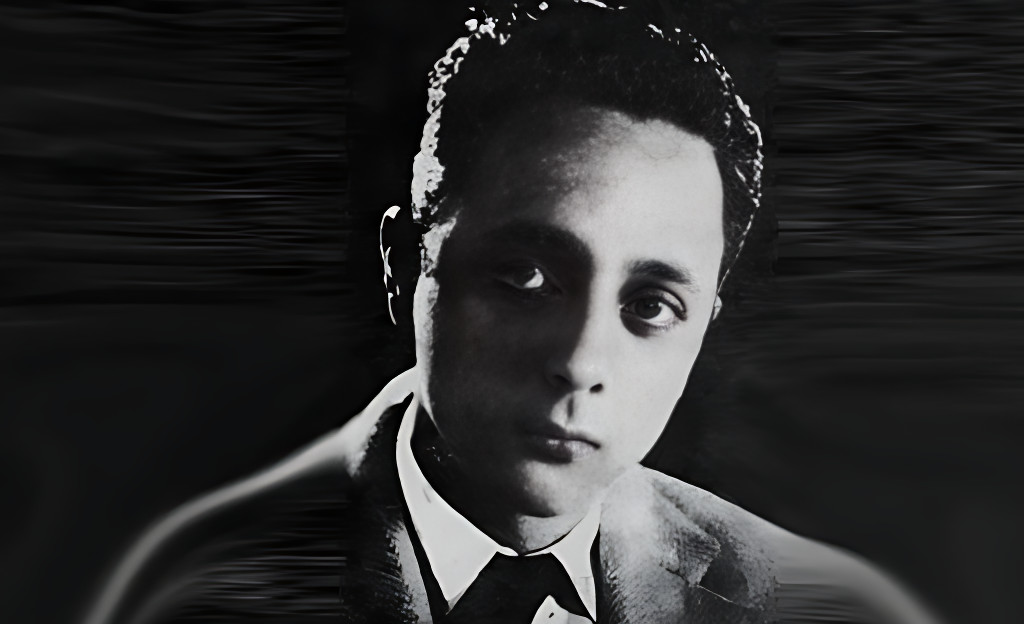David Ledesma Vásquez (Guayaquil, December 17, 1934 – March 30, 1961) was an Ecuadorian poet, writer, journalist, stage actor, and radio drama and radio soap opera actor. Although his work went unnoticed for several years after his death, it eventually acquired a cult following. He belonged to Club 7, a group of poets from the port city of Guayaquil in the 1950s. He committed suicide by hanging at the age of 27 in 1961. He left behind several unpublished works, including one ominously titled “La risa del ahorcado” [The Hanged Man’s Laugh]. Ileana Espinel Cedeño, a fellow Club 7 member, oversaw the posthumous publication of his poetry collection “Cuaderno de Orfeo” [Orfeo’s Notebook] in 1962.
Background
David Ledesma Vásquez was born on December 17, 1934, into a wealthy family in Guayaquil, Guayas province. His parents were David Alberto Ledesma Vélez and Carmen Luisa Vásquez Loor. He finished his secondary education at Vicente Rocafuerte National School.
From a young age, Ledesma had a tumultuous relationship with his family, who did not accept his homosexuality or his penchant for letters, traits that contrasted with those of his older brother, who had died as a hero during the 1941 war. When Ledesma reached the age of 18, his father attempted to enlist him in the military but he was denied due to his flat feet and asthma. According to his theater colleague, playwright José Guerra Castillo, Ledesma’s father hospitalized him for six months in a Lima clinic where they tried to change his sexual orientation through conversion therapy.
Ledesma was married for less than a year to an actress named Mercedes Cajamarca, with whom he had a daughter and maintained a friendly relationship until his death.
Literary career
David Ledesma Vásquez’ literary career began in 1950, when his story “Soledad” [Solitude] was published in the newspaper La Nación. The following year, he received high praise for his poem “La muerte del saltamontes” [The Grasshopper’s Death] at the Floral Games of the Vida Porteña program.
During the 1950s, Ledesma was a member of the poetry group “Club 7,” a group of seven young poets who gained popularity in the local press. The other members of the group were: Ileana Espinel Cedeño, Miguel Donoso Pareja, Carlos Benavides Vega, Gastón Hidalgo Ortega, Charles Abadíe Silva, and Sergio Román Armendáriz. Donoso and Abadíe left the group after learning of Ledesma and Benavides’ homosexuality.
In 1953 Ledesma published his first collection of poems, “Cristal,” which was followed by “Club 7” in 1954, which he co-wrote with four other members of Club 7: Ileana Espinel, Carlos Benavides Vega, Gastón Hidalgo, and Sergio Román Armendáriz. In 1958, his poetry collection “Gris” obtained an honorable mention from the Caracas newspaper Lírica Hispánica.
Death
David Ledesma Vásquez was discovered hanged in his parents’ Centenario neighborhood home on March 30, 1961. He was hanging from his neck in a closet with a yellow tie and a red ribbon in his hands; in his shirt pocket was his final poem, which his relatives and friends dubbed “The Final Poem.” A suicide letter was discovered in the facilities of Radio CRE, where he was working at the time, wherein he apologized to his colleague from their radio program “Aqui Cuba,” asking him to look after his wife.
Poems
TEORÍA DE LA LLAMA
Ya no soy más
el hijo de mis padres,
sobrino de mis tías,
nieto de mi abuela;
el ciudadano
que portaba la cédula
número 1317284,
que −en pie− cantaba un himno nacional
y que firmó: David Ledesma
sobre cartas
y cheques
y canciones.
He muerto en mí para resucitarme.
Un nuevo ser me viste.
Ya no puedo decir que soy un hombre
ni que vivo en tal parte,
ni que amo,
ni que soy. Ya no soy.
Me transfiguro
en una entera llama de Poesía
que arde,
crepita
y ruge
desde adentro.
Puedo tener un rostro como un viento,
un hueso como un río,
una muerte como un canción.
Mi ser no es esta costra.
No soy yo.
Ni es mi familia.
Ni es mi pueblo. Ni
es siquiera mi nombre.
Es un espacio luminoso y puro.
Un punto indefinido.
Intangible.
Inasible.
Indescriptible.
Una partícula
de fuerza,
de combate
que me nutre con sus tremendas brasas.
Ahora puedo morir,
puedo vivir también,
sobre mi cuerpo pueden caer piedras,
puede, bajo mis plantas hundirse el suelo:
y no caeré,
ni sufriré dolor.
La Llama me alimenta.
Me sostiene.
Estoy enteramente poseído
de una fuerza que es magia
y armonía.
No busco las palabras hermosas,
ni quiero los sentimientos nobles;
no busco ni siquiera el tono melodioso de la voz,
no busco nada,
mi voz es parte de la Llama,
es un instrumento al servicio de la Llama.
Y este fuego letal,
sagrado,
inexplicable,
me nutre y me posee.
Y ardo
nada más.
Tocado estoy de Gracia y de Misterio.
Read an English translation of this poem here.
Works
- Cristal (1953)
- Club 7 (1954), (collaborative work)
- Gris (1958)
- Triángulo (1960), (collaborative work)
- Cuaderno de Orfeo (1962)
- David Ledesma Vázquez, obra poética completa (2007) – (his complete works)

